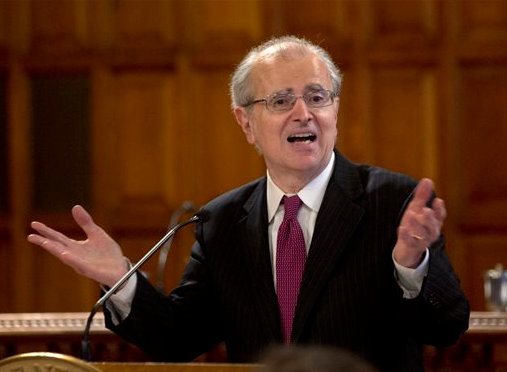Parole reinstated for Brooklyn man convicted in cop killing

Chief Judge Jonathan Lippman. AP photo
A Brooklyn defendant breathes a sigh of relief as the New York State Court of Appeals has reinstated a previously rescinded parole.
In September 2013, the state parole board refused to release Pablo Costello who had been convicted of murder when his accomplice fatally shot policeman David Guttenberg during a 1978 robbery at a Brooklyn auto supply store on 86th Street near Seventh Avenue.
In 2009, after serving 30 years behind bars, the parole board granted Costello’s release only to reverse its decision shortly after. Protests by the New York City Patrolmen’s Benevolent Association (NYCPBA) and members of Guttenberg’s family were cited as the underlying reason for the parole board’s reversal.